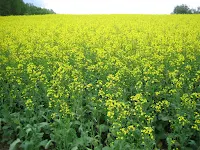It’s not looking good for the vaquita.
Photo: C. Faesi / Proyecto Vaquita 1992.
The vaquita are porpoises which measure only about 1.5 meters, fully grown. They’re among the smallest of the cetaceans, an order of marine mammals which includes porpoises, dolphins and whales. Their numbers have now dwindled to fewer than 30 in Mexico’s Gulf of California, where they live.
The National Oceanic and Atmospheric Administration reports vaquita numbers have declined an astonishing 92% since 1997. Gill net
fishing is the main culprit. The vaquita have become “collateral damage” as poachers target a fish whose swim bladder fetches $20 thousand dollars per kilogram for use in Chinese medicine.
Mexico has imposed a permanent ban on the taking of vaquita. But authorities have been unable to enforce the law sufficiently to make a difference.
Now, the magazine, Science is reporting, an eleventh-hour bid by a team of conservationists, to bring them back from the brink, has been a heartbreaking failure.
A rescue team has been trying for some two years now to capture enough live animals to breed them in captivity, so their numbers can recover. But the vaquita have proven so sensitive to the stress of capture, two females have now died. And the rescuers have decided it's just not worth risking the death of any more. So the effort has been called off with no plans for another.
The rescuers do not regret having tried. They’re just sorry they hadn’t started sooner.
So where does this leave these vulnerable, intelligent, innocent creatures?
According to the author of the Science article - in “extreme peril.”
































